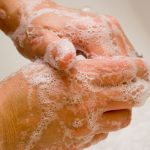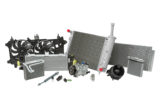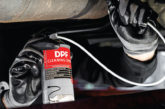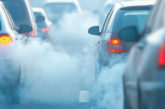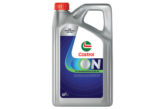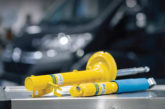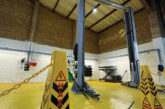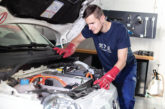Peter Crossen, VP of the Maintenance and Partsmaster Innovation Platform of NCH Europe, explains the industry impact of the latest Greenpeace campaign to ban microbeads.
Our oceans contain around five trillion pieces of plastic that weigh a combined total of more than 250,000 tonnes – with a further eight million tonnes added each year, according to Greenpeace. Just how large a portion of this problem is the result of microbeads has recently come to the attention of environmental agencies and global governments.
Used in a range of products, including industrial hand washes, microbeads have been touted as the ideal exfoliant. The particles can be just 1mm in diameter – too small for waste water filters to catch them before water is returned to the ocean, and over 100,000 beads can be washed away in a single application.
What’s bad for the environment is bad for us
Microbeads are commonly made of polyethylene and end up in the stomachs of fish, seabirds, and whales – even plankton absorb them.
Studies have found that 663 species of marine wildlife are affected by plastic pollution, with eleven percent of this being caused by microbeads. One study in particular found that around 35 percent of 670 fish examined had microbeads in their stomachs, with one fish full to bursting with 83 beads.
This is unappetising when you consider how likely it is that fish that end up on our plates may contain plastic, and it only gets more worrying when you consider the other health implications.
An array of toxic chemicals, including flame-retardants, are added to the beads during manufacturing, which leach out into the water supply when exposed to sunlight. Research by Deltares has shown that when plastics break down they release other toxic substances that can cause health problems such as hormonal imbalances or neurological diseases.
Time to change
The US President, Barack Obama, and the Canadian Government have already acted to prevent further contamination by banning the use of microbeads in cosmetic products; Greenpeace are campaigning to the UK Government to follow suit.
Industry needs to do its bit
Thousands of hardworking mechanics reach for microbead-heavy hand wash to remove the build up of grease and grime on their hands. In many cases, such environments specifically demand products with a higher concentration of microbeads, believing it necessary for efficient cleaning.
Manufacturers of these products that don’t want to be left high and dry by the ban need to be able to provide a more eco-friendly alternative that is as effective as plastic-heavy washes.
NCH Europe has done just that with its HDHC Natural, which uses biodegradable olive stones as an abrasive ingredient, providing an effective alternative to microbeads.
With effective, natural alternatives available, it is easy for industry to join the fight without compromising performance. It’s surprising how much damage such a small thing can do to our environment, but by making one simple change we can all make a huge difference, whether or not Greenpeace is able to convince the UK Government to follow suit.

